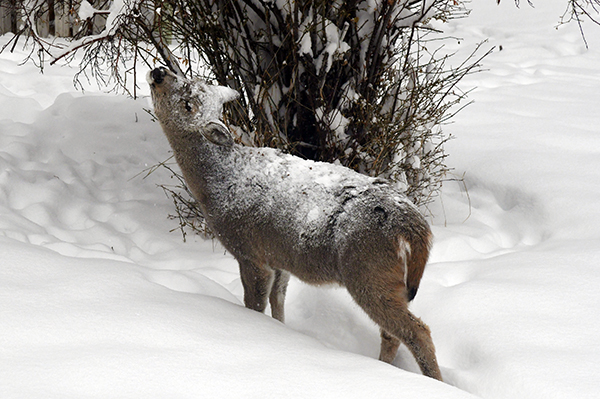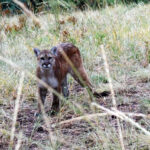Home »

January Cranbrook deer hunt set to reduce CWD
The B.C. Ministry of Water, Land and Resource Stewardship this morning announced a deer hunt is being introduced in Cranbrook from Jan. 5-31, 2026, to reduce the risk of chronic wasting disease (CWD) spreading among B.C.’s deer populations and to increase sampling efforts to monitor the disease’s prevalence.
Chronic wasting disease is a fatal infection that affects species in the deer family (cervids), such as mule deer, white-tailed deer, elk, moose and caribou.
The Cranbrook area is at the centre of a cluster of CWD cases, which put surrounding deer and elk populations at risk.
The hunt intends to lower deer density in the surrounding area near Cranbrook to reduce the opportunity for spread and remove potentially infected animals from the landscape. Reducing deer numbers in this area will help protect wildlife health, hunting opportunities and the cultural, recreational and food resources communities rely on.
During the hunt, hunters in the designated Cranbrook zone will be allowed to harvest one additional deer, in addition to the regional “bag limit” of two. The additional deer will only be allowed to be harvested during the January deer season, the ministry explained.
“The hunt will allow the harvest of both antlered and antlerless mule deer and white-tailed deer. It will be open to any licensed B.C. deer hunter. Hunters play an important role in B.C.’s ability to contain CWD, as their participation and submission of harvested animals for testing is crucial to disease detection and control,” the ministry said.
“Currently, it is estimated that fewer than one per cent of deer in the Cranbrook area are infected with CWD. This targeted, time-restricted hunt is one of the ways the province is keeping disease prevalence low and reducing the risk of CWD entering or spreading within B.C. wildlife populations.
“The hunt builds on more than 20 years of ongoing surveillance and preventative measures, with targeted efforts in the highest-risk areas,” the ministry continued in a media release. “Other recent actions include targeted removal and testing of urban deer in Cranbrook and Kimberley, mandatory testing for harvested deer, moose and elk in the Kootenay region, carcass transport restrictions, and ongoing monitoring with First Nations and local governments.
“Together with hunters’ participation, these measures help provide early detection, slow the spread of the disease, and help safeguard healthy wildlife populations for future generations.”
Most infected animals will not show any symptoms of the disease. However, anyone who sees a deer, elk, moose or caribou exhibiting symptoms such as weight loss, drooling, poor co-ordination, stumbling, or that looks sick, should report it to the 24/7 Report All Poachers and Polluters Line at 1-877-952-7277 or the B.C. Wildlife Health Program.
To date, there have been six confirmed cases of chronic wasting disease in B.C.
Chronic wasting disease was first detected in B.C. in 2023, in two deer sampled from the Kootenay region (Cranbrook area).
All four positive cases of CWD identified in the 2024-25 season were white-tailed deer, also from the Kootenay region near Cranbrook, including two males and two females.
Three of the deer sampled and confirmed to have CWD in the 2024-25 season were harvested by licensed hunters, one was identified through targeted sampling of urban deer.
e-KNOW file photo
e-KNOW







